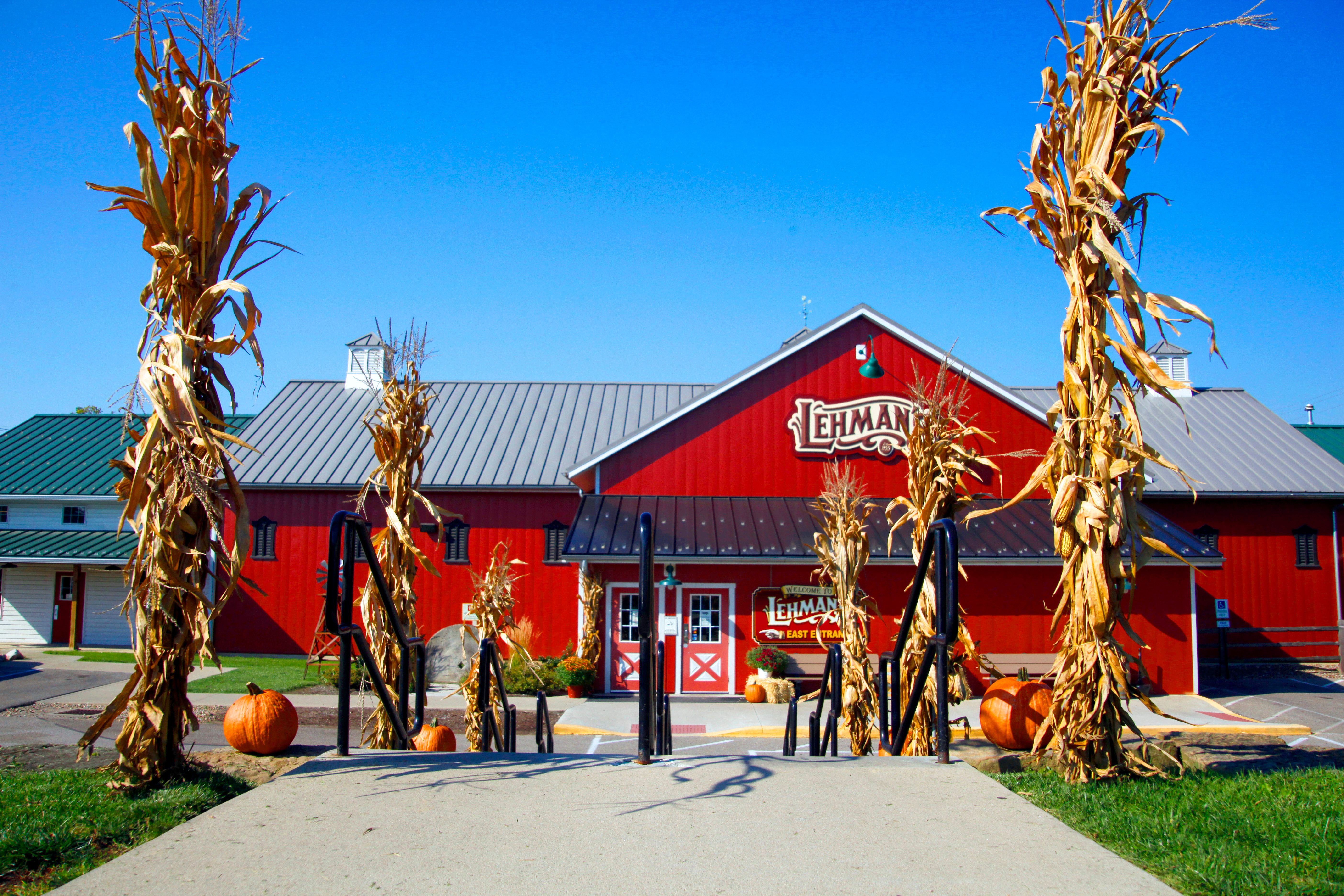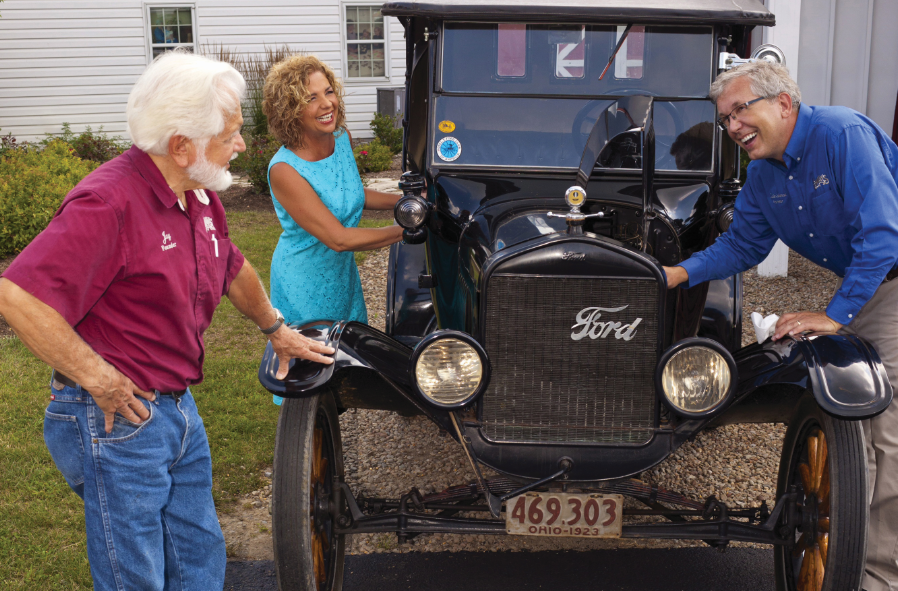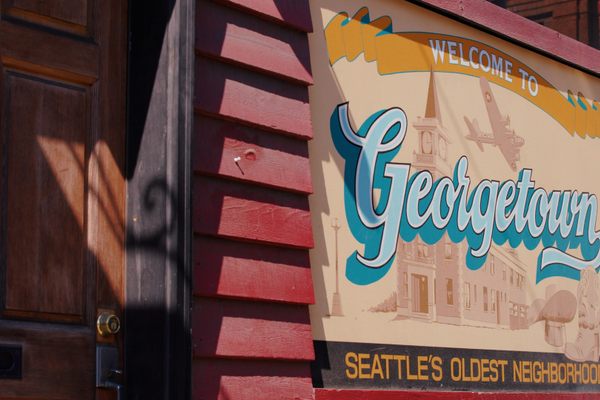The Ohio Superstore That Beat Walmart by Giving Up Electricity

Lehman’s (Photo: Courtesy of Lehman’s)
The world was supposed to end on December 23, 2012, and Lehman’s, the largest purveyor of non-electric goods in the U.S., knew it. Anytime the apocalypse is nigh, Lehman’s sees a surge in business. And usually the Ohio-based store hears from their customers exactly what impending doom is expected to upend humanity this time around.
The year and a half before Y2K, for Lehman’s, was almost overwhelming. Tens of thousands of people started calling. Orders for appliances like wood stoves, oil lamps and hand-cracked washers started to backlog. Sometimes they wouldn’t be fulfilled for weeks, even months.
More recently, the legalization of gay marriage has gotten some customers worried about end times. The pope’s visit to the White House had some spooked, too. “We heard this fall that the world’s going to end. We take it with a grain of salt, and we stay out of the religious and political talk,” says marketing VP Glenda Lehman Ervin, the daughter of the store’s founder, Jay Lehman. “But every time we hear these things, there’s a grain of truth in there somewhere. We listen respectfully, and we help them find the products they want.”
At this point, Lehman’s has weathered decades of would-be world-ending events, to become a superstore for purposefully old-fashioned, non-electric everything. During the store’s first decade or two in business, its main customers were locals, many of them from nearby Amish communities. But now Lehman’s caters to everyone from off-the-grid environmentalists to missionaries to preppers. Now, more than ever before, there is a demand for the wares the store sells. By sticking with the tried and true, the old and unnecessary, Lehman’s has become surprisingly trendy.

Canning supplies, anyone? (Photo: Juan-Calderon/Flickr)
These days, the store has a large department for housewares, with everything needed to chop food, bake it, freeze it, can it, put it in a pie, or preserve it in some other way. There’s a farm kitchen with a butter press, cider maker and ice cream freezer. There are hand-made rugs, and room of laundry appliances (racks, soap, hand-wringers), and a large toy room. The bookshop is well-stocked with information about raising goats and chickens. It’s become its own sort of superstore—albeit one where the architecture incorporates four barn structures that date to before the Civil War.
Jay Lehman first got into the business of peddling “historical technology,” as the store calls it, in 1955, when he came home from serving overseas and was looking for a job. A hardware store, in Kidron, Ohio, about an hour south of Cleveland, was up for sale. With a loan co-signed by his father, Lehman bought it and set about learning how to run it.
“Most people who had a hardware store in 1955 grew out of that business model, says Ervin. “Dad did not.” Older technology appealed to him, because it’s simple enough to fix up when something goes wrong. “He has a 1923 Model T that he drives around in,’ she says. “He likes to be able to look at something, see what’s wrong with it, and fix it.”

Jay Lehman, with his car and two kids (Photo: Lehman’s)
Lehman’s always stocked non-electric technology for its Amish customers. But, in the 1970s, the Lehman family first started to understand that there were other groups of people who would benefit from old-school technology as well. Jay Lehman spent much of the 1960s working in Africa for a church-run travel agency that helped facilitate travel for missionaries. When he came home, he grew recommitted to selling products that people living in places without good access to electricity would need, including wood-fired heating and cooking stoves.
In the early 1970s, the manufacturers of these stoves, though, were seeing demand dry up, so much so that they were planning on ending production. When Lehman went to put in an order, the manufacturer required that he buy a three-year supply, in order to ship them at all.
This was just before the 1973-1974 oil embargo hit, and when it did, all of a sudden, the demand for wood-fire stoves jumped. “His three-year supply was gone in six months,” says Ervin, “and when he went back to the stove manufacturers, he was kind of first in line.”
After that, the business started to grow fast, as customers from further afield—Pittsburgh, Columbus, and Raleigh—started calling. Rodale’s Organic Gardening magazine ran a feature on the store. More people started asking if it were possible to ship Lehman’s products to them. In 1978, Lehman and his brother put together the first Lehman’s catalogue, with a print run of a couple thousand.

A wood-fired stove at Lehman’s (Photo: sonja/Flickr)
As it started specializing in non-electric goods, Lehman’s escaped the fate of most mom-and-pop hardware stores. At the same time this small store in northeastern Ohio was expanding, so were the big box stores. The first WalMart opened in 1969, just as Lehman was coming back from Africa; by the end of the 1980s, it had taken over much of the Midwest and the Bible Belt. Since Lehman’s was selling very specific products to communities that needed them, it didn’t have to fight the big box stores that closed down so many other independent stores.
“We don’t carry paint any more because we can’t compete on that,” says Ervin. “But we have everything you need for an oil lamp. My dad strategically chose those product lines that most people aren’t interested in.”
At Lehman’s, she says, the top-selling products have not changed for decades. Wood stoves, gas refrigerators, oil lamps, water pumps, and water filters are always popular: if you don’t have electricity, you still need ways to store food, stay warm, light the night, and access water. But right now, the wares that Lehman’s has stocked for years happen to be growing in popularity for the first time since their heydey in the 1800s.
“We’ve known the term ‘off-the-grid’ for many, many years,” Ervin says. “But now it’s a thing.”









Follow us on Twitter to get the latest on the world's hidden wonders.
Like us on Facebook to get the latest on the world's hidden wonders.
Follow us on Twitter Like us on Facebook